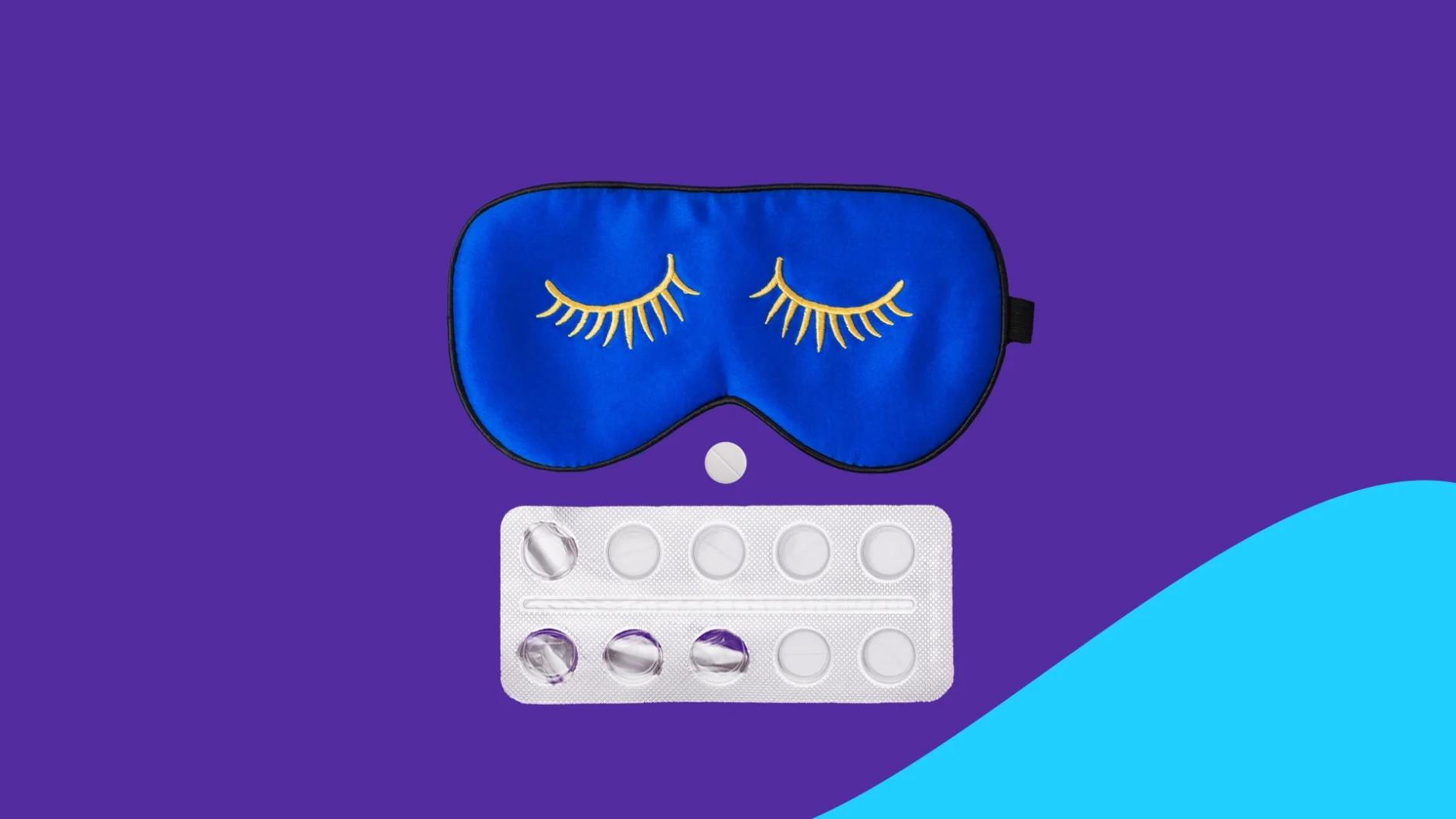You’ve had itchy, watery eyes for days. Or maybe you can’t stop sneezing. Desperate for help, you head to the store for meds that promise allergy relief. Chances are, you walk out with an over-the-counter (OTC) treatment like Zyrtec in hand.
Zyrtec is the brand name for cetirizine, an antihistamine used to treat allergy symptoms like itchy eyes, runny nose, and sneezing. Like all antihistamine medications, it works by blocking the effects of histamines, natural substances the body produces in response to allergens. Zyrtec-D, a different option, combines cetirizine and the nasal decongestant pseudoephedrine.
While Zyrtec is considered generally safe for most people, it may still cause side effects. The most common side effects of Zyrtec include drowsiness, dry mouth, and dizziness. So, will Zyrtec make you sleepy? And if so, how long will it take for the drowsiness to wear off?
Does Zyrtec make you drowsy?
Drowsiness is a common side effect of Zyrtec. In placebo-controlled clinical trials, 11% to 14% of patients taking Zyrtec reported feeling sleepy after taking the medication.
Of course, Zyrtec is not the only allergy medication that causes drowsiness. Older, first-generation antihistamines—such as Benadryl (diphenhydramine) or hydroxyzine—are even more likely to have sedative-like effects, explains Jodie Pepin, Pharm.D., the clinical pharmacy program director at Harbor Health in Austin, Texas. Second-generation antihistamines were developed to be as effective with fewer or less severe side effects.
According to Dr. Pepin, if you’re one of the people who experience drowsiness from Zyrtec, you’ll start feeling sleepy 60-90 minutes after taking it. This side effect can last up to eight hours, she adds.
In addition to drowsiness, other common Zyrtec side effects include:
- Fatigue
- Dry mouth
- Sore throat
- Dizziness
Some less common side effects of Zyrtec include abdominal pain, diarrhea, and nosebleeds.
4 reasons Zyrtec could make you drowsy
Although you may not be able to fully control cetirizine making you drowsy, there are four factors that impact the likelihood the medication will make you more sleepy.
- You’re taking a high dose. The higher your Zyrtec dose, the more likely you will experience adverse side effects. Zyrtec (cetirizine) is available in standard tablets (10 mg), liquid gels (10 mg), chewable tablets (2.5 mg and 10 mg), and syrup (1 mg per 1 mL). The recommended dose for most adults is 10 mg (one pill) per day. However, people older than 65 or with kidney or liver disease should consider reducing their dose to 5 mg daily, according to Dr. Pepin.
- You’re taking it in the morning. If you want to avoid daytime sleepiness from Zyrtec, take it at night, says Dr. Pepin. “Since sedation can occur up to eight hours after taking a dose, taking it at bedtime will alleviate the daytime sleepiness that can occur if taken in the morning,” she explains.
- You’re combining it with alcohol. Zyrtec and alcohol both have sedative-like effects. Combining the two can worsen drowsiness, cautions Blair Gingerich, Pharm.D., a clinical care and retail pharmacist in northern Indiana.
- You’re mixing it with other medications. Taking Zyrtec with medications that also cause drowsiness may amplify the effect overall, says Dr. Gingerich. Drugs known to cause drowsiness include benzodiazepines (a type of anxiety medication), opioid pain medicines, sleeping medications, muscle relaxants, seizure medications (such as gabapentin), and other CNS depressant medications (medicines that slow down the central nervous system).
How to use Zyrtec safely
Zyrtec is considered safe by the U.S. Food and Drug Administration (FDA) when proper dosage is followed. Always follow the instructions on the label for accurate dosing. The standard daily Zyrtec dosage depends on the age of the patient as well as the formulation
Zyrtec is considered generally safe for long-term use. However, it’s best to consult your healthcare provider about possible interactions with other medications or potential long-term side effects based on age and health conditions. Specifically, you should talk to your healthcare provider before taking Zyrtec if you are:
- Pregnant or planning to become pregnant
- Breastfeeding
- Living with kidney disease or liver disease
- Taking an allergy medicine for the first time
Some people are allergic to one or more components of Zyrtec or generic cetirizine. If you experience signs of anaphylaxis, such as hives, swelling, or trouble breathing, call 911.
Once you have taken Zyrtec for allergy symptoms, Dr. Pepin recommends monitoring yourself to determine if you are one of the 14% of people who experience drowsiness. If you are, avoid driving or operating heavy machinery until you know how Zyrtec affects you. Because both Zyrtec and alcohol can cause excessive sleepiness, it’s best to avoid drinking alcohol while taking Zyrtec.
If you do not want to take Zyrtec, or if you find that Zyrtec is not working for you, a primary care provider or allergist can offer medical advice about other medications for seasonal allergies, hay fever, or sinus issues. For example, Claritin (loratadine), Allegra (fexofenadine), and Xyzal (levocetirizine) are all second-generation antihistamines. Or, you might need a nasal steroid, such as Flonase, or an allergy eye drop, such as Pataday. If your allergy symptoms are severe, a healthcare provider can also offer guidance on prescription drugs or allergy shots for allergy relief.
- Zyrtec (cetirizine hydrochloride) tablets and syrup, U.S. Food and Drug Administration (2002)
- Zyrtec-D 12 Hour (cetirizine hydrochloride 5 mg and pseudoephedrine hydrochloride 120 mg) extended-release tablets, U.S. Food and Drug Administration (2003)



